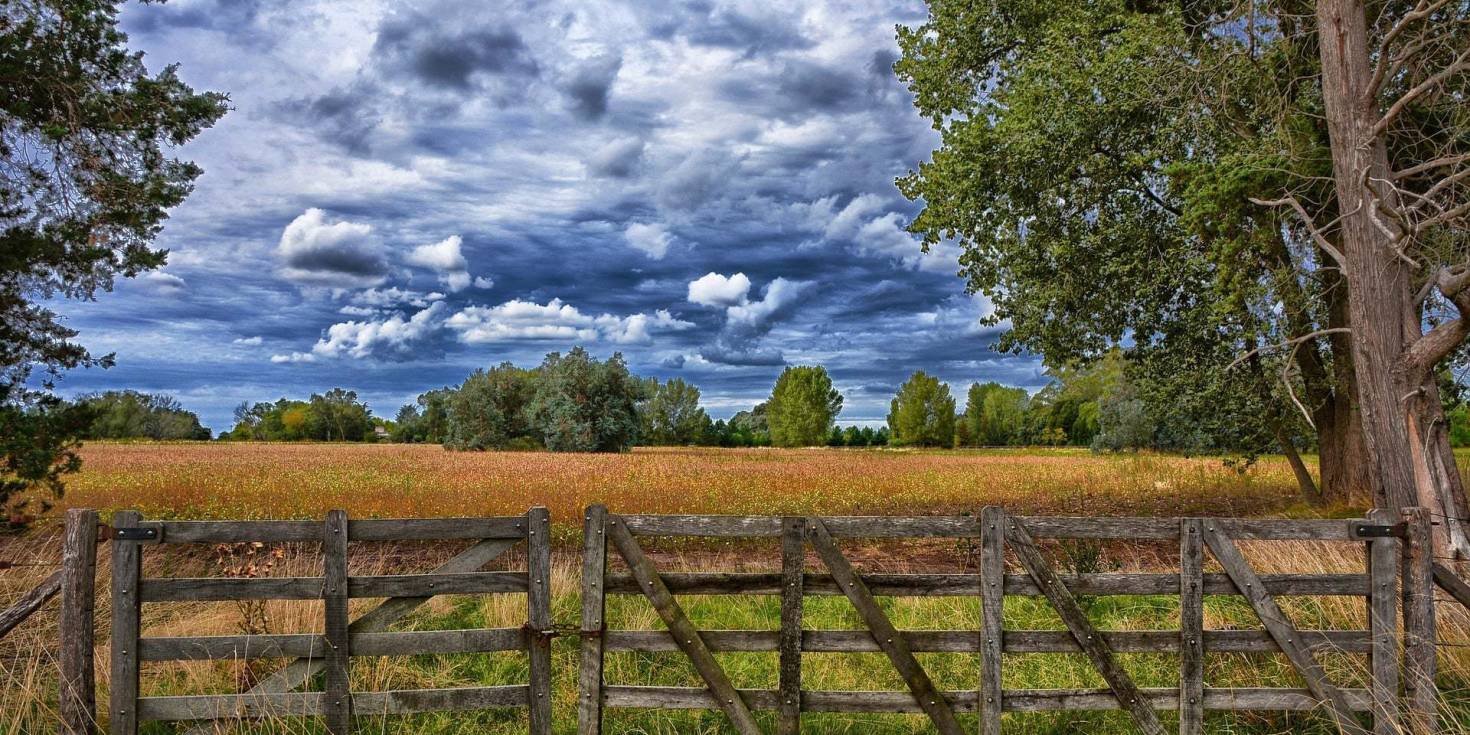After doing some research, you found a great property for pennies on the dollar and decided to go ahead and pull the trigger. The deal was so good that through the whole process you were asking yourself, “why didn’t anybody else take advantage of this incredible opportunity?” Dollar signs are going through your head envisioning how much money you're going to make when you flip it.
There’s a problem though… the land just isn’t selling.
One of the most common and frustrating questions in real estate is “why isn’t my property selling?” Dumping a bunch of money into a property with the expectation of getting it back twofold and it not happening can be unsettling, to say the least. It may be even more common in the land market since on average, it takes longer for land to sell than homes. According to realtor.com historical data, the average time on market for houses in 2019 was 66 days. Although no national time on market data is available for land-specific listings, the average is significantly larger than 72 days. Depending on the circumstances, unsettling may be the word for some people while desperate or frantic may be the description of the situation for others. There are folks out there whose family, livelihood, and next stage of life is dependent on the money generated from selling a property.
Never fear! Before you get too discouraged, it’s helpful to know you’re not unique. Many people have run into this obstacle, and their experience has led to some solutions that work in many cases as long as you’re willing to apply them to your situation.
In order to find out what to do when your land won’t sell, it’s first important to understand why it isn’t selling. If you can find out why you can then formulate a strategic approach that makes sense. Sometimes this is easier said than done. In certain cases, it’s relatively easy to pinpoint what’s going on when a property isn’t selling. In other cases, it can be somewhat difficult. In a few rare instances, it may be a mystery and you may never be able to figure out why.
Reasons why your land isn’t selling
When you get down do it, if your land isn’t selling, it’s usually going to fall into one of these first two categories (and it could fall into both). It's possible though, the culprit could be something a little less obvious.

Buyers disagree with your price
A piece of property that is priced too high is almost guaranteed to push buyers away. Since people work hard for their money, it’s important to them and they’re going to spend it wisely, proceeding with caution. They also have the innate desire to be treated fairly. Even if your price is a relatively small amount of money for a specific buyer, if they feel they’re getting a raw deal, they’re probably not going to pay what you’re asking. They need to feel that the item they’re getting in return for their hard-earned money is at least equal in value to the money. A good business policy is to treat people fairly no matter what not because they’re fair, but because you are.
It is not fair to ask of others what you are not willing to do yourself.Eleanor Roosevelt
Even though this doesn’t automatically mean your land is priced wrong, it does mean buyers who have seen your land and are interested in that type of property disagree with your valuation. You could either be overshooting the mark on your valuation or failing to provide sufficient evidence of why the property is that valuable to buyers.
If you actually find a buyer that’s willing to pay a premium but needs a loan from an institution, you could run into the situation where the land won’t appraise, the lender won’t loan, and the sale doesn’t happen.
The right people haven’t seen your property
Let’s assume you’ve done a lot of research and priced your property fairly but it’s still on the market. If the right buyer is out there, you simply haven’t reached them. In other words, you need to take a closer look at your marketing efforts and possibly approach it differently.
The real problem could be found in a number of different details. It may be that you aren’t utilizing the Internet and getting in front of enough buyers. Or if you are reaching buyers, it’s possible your photography and property description need some work to ensure your land is attractive.

Your land needs a little TLC
This may seem obvious but you’d be surprised how it often gets overlooked. It’s related to marketing in that if your land doesn’t look attractive, who would you expect buyers to be attracted to it. Even if your photography is well done and highlights the right features, if buyers visit the property and it looks nasty, chaotic, and trashy, many buyers will move on to something else when they might not otherwise.
It’s not a priority for your agent
Unfortunately, or fortunately depending on how you look at it, everything that flies the real estate flag is not the same. It’s a well-known fact that some real estate agents are simply better than others. If your land isn’t selling, it could be because selling your property is not a priority for the agent you’ve hired or they’re too busy. There’s always the possibility they don’t care, but we hope that’s not the case.
There’s a problem with the title
A property’s title is a legal concept of ownership that describes the relationship, or rights, between the title holder and the property. Problems with a title are almost sure to scare off many buyers. These issues could range from liens, encumbrances, and easements, to forgeries boundary concerns, and even errors in public records. The reason buyers get spooked is because many times the details about these complications are unknown and can cause big-time trouble in the future.
It’s located in an undesirable area
Since a property’s location is considered one of the most important factors in determining value, it makes sense that it could also be a reason why you’re land hasn’t sold. Your property being situated in a high-crime area, in a flood zone, near a landfill, by a nuclear plant, or for some just too far away from civilization, could what’s turning buyers off.
Proven solutions when your land isn’t selling
Since we’ve established several possible explanations for why your land isn’t selling, we can take those and devise a game plan that will place the property in a better position to sell. These methods have proven they get results and the results speak for themselves.
Change your marketing approach
Since this is one of the more common reasons why properties aren’t currently selling, it’s vital to review your marketing strategy and be willing to try something different. The greatest justification for changing anything is because it’s not working. A strong marketing strategy is critical for real estate success. The majority of buyers start their search online, so digital marketing is where the bulk of your focus should go. With all the competition out there today, you have to step up your marketing game to get potential buyers to even notice you. The key is to make sure you represent your property with the highest quality possible. This could be addressed in several different ways.
According to a National Association of Realtors 2017 report, 95% of buyers search online websites for property, 72% search on their mobile phone, tablet, or use an app, and 36% use online video websites. 83% of all buyers use the Internet to search frequently. 89% found photos useful and 85% found detailed information about the property helpful. 93% of real estate firms have a website and the most common feature is property listings at 95%.
Photography is a great place to start. Many advertising platforms have a lot of listings with high-quality photos and videos. It’s doubtful that anyone shopping for land will notice your listings if you have low-quality, unattractive photos, or maybe even no photos at all. Buyers will scroll right past your listing to a property that’s visually appealing. The importance of photography in real estate probably can’t be overstated. You have to make sure you depict your property with high-quality, professional photography or the first impression will be the last impression. For more details, check out our article discussing the power of photography in land marketing.
The property description is another aspect to take a look at. Can you believe some people write 5 to 6-word property descriptions and some don’t write them at all? Again, with all the options available in the market, a dynamic, compelling property description is more likely to get people’s attention. It’s important to note that with land, you’ll need to help the reader envision the appealing things they can do with the property whether it be improvements, recreation, or farming.
Here are 2 examples of actual property descriptions found in 2 different land listings. You be the judge on which one would be more likely to grab the reader’s attention and help them decide if this is the type of property they’re looking for.
Example #1
Vacant lot close to town.
Example #2
Take a look at this smaller property located south of Dallas City. If you have been in the market for a great building site in the country then you know properties like this are very hard to come by. The property is located about a mile off of Route 9 with blacktop frontage. The property is mostly flat and would make a great home site along with ample room for a shop or machine shed along with a nice pond that offers great fishing opportunities. There is a well on the adjacent property that can be hooked up to for a primary water source and power is available at the road. Property lines on the east are negotiable. Call or email for more details or to schedule a showing.
Advertising can be the difference in whether the land sells or continues to sit on the market. The questions are… where and when? To answer the question of where, ask the question, “where are the buyers?” The answer is buyers are hanging out where they can find the most comprehensive list of nearby land for sale and have the best experience in the process. LandSearch fits the bill and is the ultimate resource for selling land. To get your property listed and significantly increase the chances it selling, check out our land marketing services page or let us know you'd like to post your property on LandSearch.
Another place buyers spend time is on social media platforms. If you’re not getting many bites, try posting your land for sale on popular platforms like Facebook, Twitter, and Instagram. Post frequently and research the ideal times to post on each platform to get the most engagement.
If you have the time and money, you can create a promotional video. Videos are becoming the status quo in real estate. It’s doesn’t have to be extravagant, it just needs to communicate the value and hopefully capture the attention of viewers. Here’s a great example from California Outdoor Properties.
Show your land some love
The first in-person impression of a property has the power to dictate the buyer's whole attitude and angle of approach through the rest of the process. Will it be a positive, enthusiastic perspective, or a negative, disinterested one? Make sure the property is clean and neat. Cut the grass. Declutter anything you can to make the land look open and spacious. If there are any structures clean them and make them look well-kept. Providing the property with some “curb appeal” will help in cultivating a positive point of view for any buyer, and it definitely won’t hurt.
Present a clear title
Most buyers are keenly aware that a dirty title can cause them some serious headaches. In order to not scare buyers away, you should try and resolve any and all issues with the title and therefore your ownership. Buyers want to know there is sole undisputed ownership of the property because there are no liens, levies, or easements. Pay who you need to pay and take the actions necessary to ensure the title and is free and clear.
Audit your agent
If you’ve hired an agent to assist you in selling your land and the job isn’t getting done, it may be time to take a serious look at hiring a different agent. Some agents are distracted, some don’t care, some have no social skills, while others are inexperienced. Selling land is different than selling houses. You may want to enlist the services of an Accredited Land Specialist. To find a land broker near you, head over to our agent directory. If your current agent won’t put in the time find someone who will. If you’re interested in learning how to approach the process, check out our article on how to find the best real estate agent. There are a lot of reliable real estate agents out there that can be a huge asset to you through the selling process. You just have to find them.
Embrace the undesirable aspects
Pretty much any property you find will have positive and negative aspects associated with it. Even though you don’t have to highlight the undesirable features of a property, it’s important to embrace them and do the best you can with what you have to work with. In other words, be honest about them and don’t try to hide them. If buyers find out you kept something important from them, the appropriate response will be… what else are they hiding? Trust might just be the most important factor in any relationship, but especially relationships where large sums of money are involved.
Look at changing the price
Notice this suggestion says “look” at lowering the price, not lower the price. Adjusting the price should be the last house on the block, the last resort so to speak. It should be what to try when all other ideas have failed. You wouldn’t want to slash your price first, receive less money, and find out you could have gotten your original asking price if you would have just marketed better. As stated above, the key is to price the property fairly. Do the required amount of research to find out what a fair market value is. Look at comps if any are available (this is more difficult when it comes to land). This way you can communicate the value to the buyer in a way that makes sense.
There are useful resources available that can be helpful in determining whether your land valuation is in the ballpark of other values, depending on what type of land it is. Here’s the USDA Land Values 2020 Summary that can help with cropland, farm real estate, and pasture values. Forisk Consulting is a great resource to find out about the value of timberland. Here's a few price per acre stats from 2017. Take a look at our blog if you want to find out more about evaluating price per acre for land.
- $4,090Cropland
- $3,080Farm real estate
- $1,350Pasture
- $1,823Timberland

Offer owner financing
Obtaining a land loan tends to be a little more difficult than securing a loan for a home, and everybody doesn’t have a stack of cash laying around they can use to buy a property. Some upstanding citizens don’t have bad credit, they just have no credit. If obtaining financing is the barrier standing in the way of your land being sold, owner financing can be a practical solution. Consider listing your property in our land for sale with owner financing available. Offering this alternative allows people who couldn’t ordinarily buy your property to become capable of buying it. Not only will it almost instantly increase your buyer pool, it can actually turn out better for you as well. You dictate the down payments, terms, and have a constant stream of revenue flowing into your bank account.
Create a buyers list
If you really want to sell your land, you’ll be willing to put in some extra effort to make it happen. One of the tried and true techniques to aid in the process is to create a targeted, streamlined buyers list. If you’re not familiar with this, it’s basically a list of people that, based on the research you’ve done, might be interested in buying the type of property you’re trying to sell. It makes a lot of sense when you think about it. Had you rather spend your time trying to sell your land to a person whom you have no idea whether or not they’re interested, or to a person that you already know is interested? Building out a buyer’s list takes time but in the end is worth the trouble. This may be apparent already, but once you create the list, you’ve got to pick up the phone and go after them. Seth Williams with REtipster.com offers an in-depth 4-part series detailing how to build a buyers list.
Add improvements
There are cases where you’re getting some interest from buyers but the deal breaker is it doesn’t have certain improvements they want. If you run into this enough, you may want to bite the bullet and shell out a little extra money to give them what they're looking for. Access roads and utilities are common improvements people like to have. It’s also possible you’d have better luck with buyers if you tear down an improvement like an old worn-down storage building, or a barn that’s falling apart.

People always want a cure but are not willing to have the surgery. In other words, if your goal is to sell your land, act like a person that wants to sell your land. This may mean adjusting your expectations to fall in line with reality. It could indicate you need to be willing to put in some extra hours and effort answering the phone, doing research, or showing your property. Whatever the case may be, stay positive, be flexible, and when the market speaks, listen.

